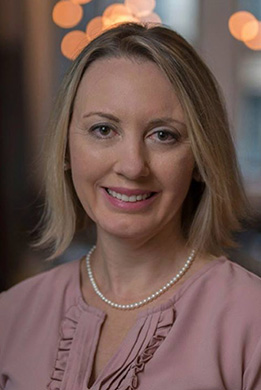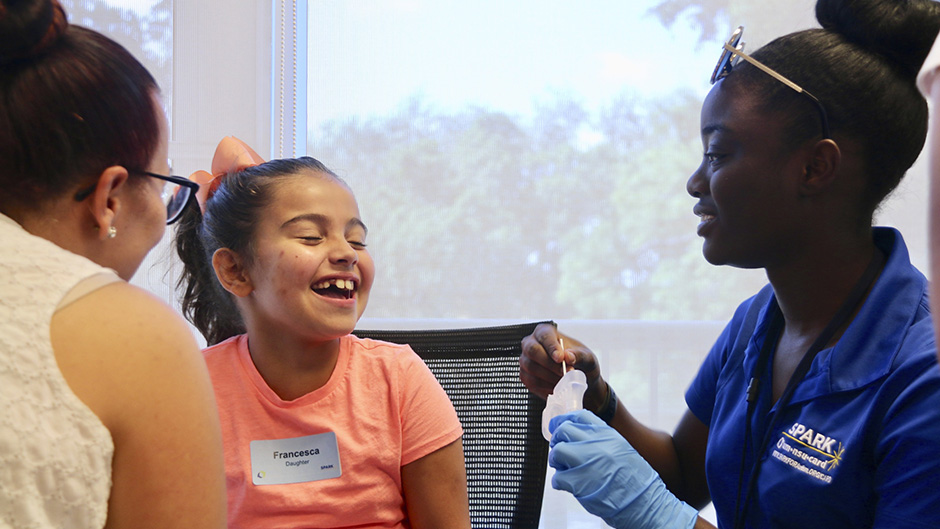Over the past three years, in hopes of accelerating research on the genetic causes and treatments for autism, University of Miami psychology faculty have recruited nearly 700 children affected by the neurodevelopmental disorder, and both of their parents, to join the world’s largest autism research project.
This month they began to see the fruits of their labors when the Simons Foundation Powering Autism Research for Knowledge, or SPARK, which is collecting DNA samples from 50,000 people with autism and their parents, released its first study on 457 families. Published in the Nature research journal npj Genomic Medicine, the study identified nine new genes that could be associated with autism spectrum disorder (ASD), including a new, high-confidence autism risk gene, BRSK2.
While the study emphasized that the findings are preliminary, it noted that many of the newly identified candidate genes “function in biological pathways that have been previously implicated in autism” and are highly expressed during the mid-stage of pregnancy, “a time in brain development that has been linked to the pathogenesis of ASD.”
UM’s SPARK investigators don’t know whether any of the 700 families—known as “trios”—from South Florida are among the 457 trios in SPARK’s initial study. But lead investigator Melissa N. Hale, associate director of the University of Miami-Nova Southeastern University Center for Autism and Related Disabilities (UM-NSU CARD), said the results are heartening for anyone interested in finding the biological causes and treatments for ASD.

“It shows that we are on the right path to be able to more clearly identify which genetic markers are associated with autism and use that information to advance our understanding of what treatments will be most effective,” said Hale, assistant professor of clinical of psychology. “This initial study was based on a very small sample—less than 500 trios—but in a few years we are going to have 50,000 trios. Since ASD is such a heterogeneous disorder, the more people we have the better able we are to identify any patterns that exist.”
To date, more than 19,000 trios have enrolled in SPARK by providing behavioral and medical information and a sample of their DNA, which is collected with a simple and painless spit of saliva. By the end of this year, 25,000 people with autism are expected to be in SPARK’s genetic sequencing pipeline, with thousands more to be completed by 2021.
“The human and scientific value of the SPARK cohort is enormous,” said Wendy Chung, SPARK’s principal investigator and the director of clinical research for the Simons Foundation Autism Research Initiative (SFARI), which enlisted collaborators from 31 universities, including UM, in the SPARK consortium. “We hope SPARK will promote a better understanding of autism and lead to better supports that improve the quality of life for individuals and families with autism.”
Though participating in SPARK is not a hard sell, Hale said, registering families to join its online database has taken considerable coordination, community outreach, and follow-up. Although families can take their own saliva samples and sign up from home, recruiters have been more successful at the more than dozen SPARK events UM has hosted at parks, the zoo, museums, and other places parents like to take their kids.
“Most individuals with autism, even if they suspect a genetic component, have no idea if a gene is impacting their functioning and they or their families are eager to learn more,” Hale said, crediting the Simons Foundation for opening that door. “Without them, this was a project that would have taken decades. Now we can advance autism research in a way we didn’t think possible.”
In addition to Hale, other UM collaborators in the SPARK consortium include the Department of Psychology’s Michael Alessandri, professor of clinical psychology and executive director of UM-NSU CARD; and Anibal Gutierrez, Jr., research associate professor.
To join SPARK visit UM-NSU CARD's SPARK site. To learn more about the Simons Foundation, which recently awarded UM's Department of Mathematics a $2 million grant to establish the Institute of the Mathematical Sciences of the Americas, visit https://www.simonsfoundation.org/.

